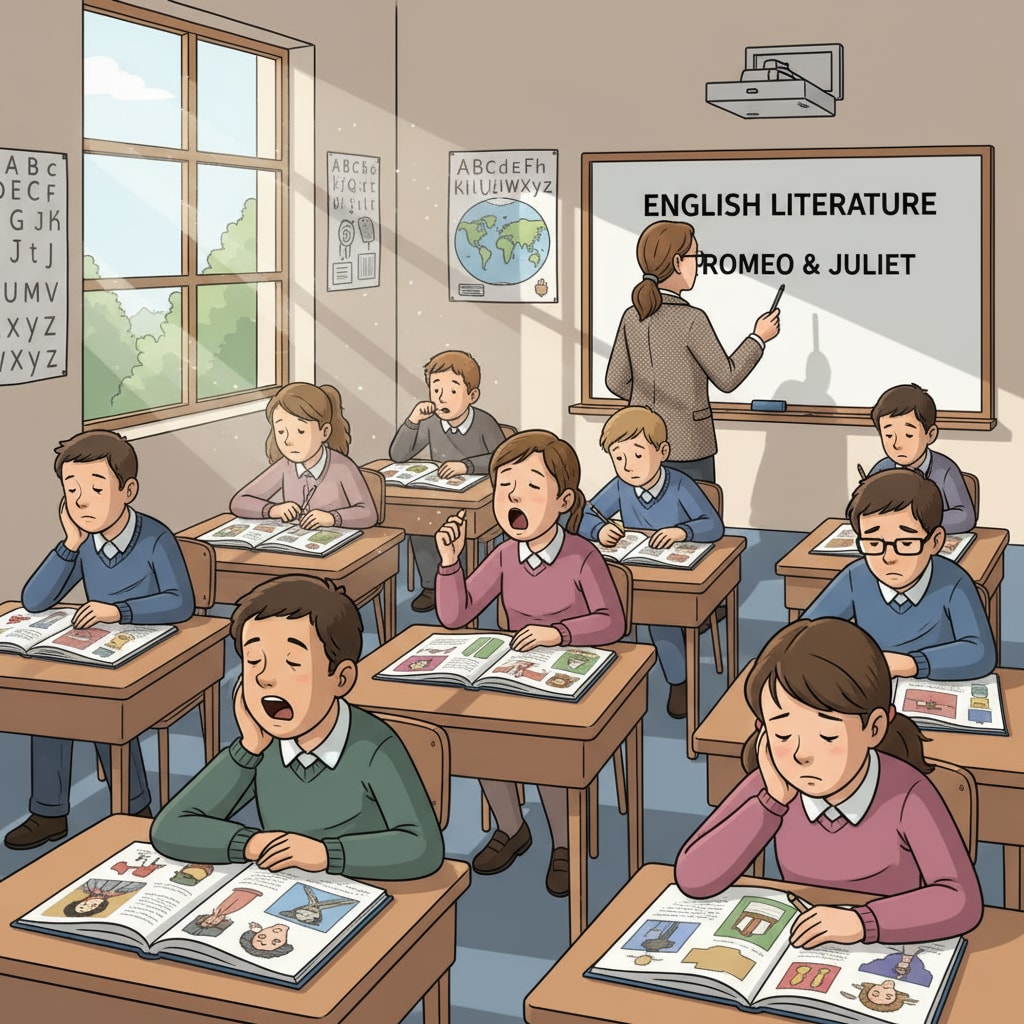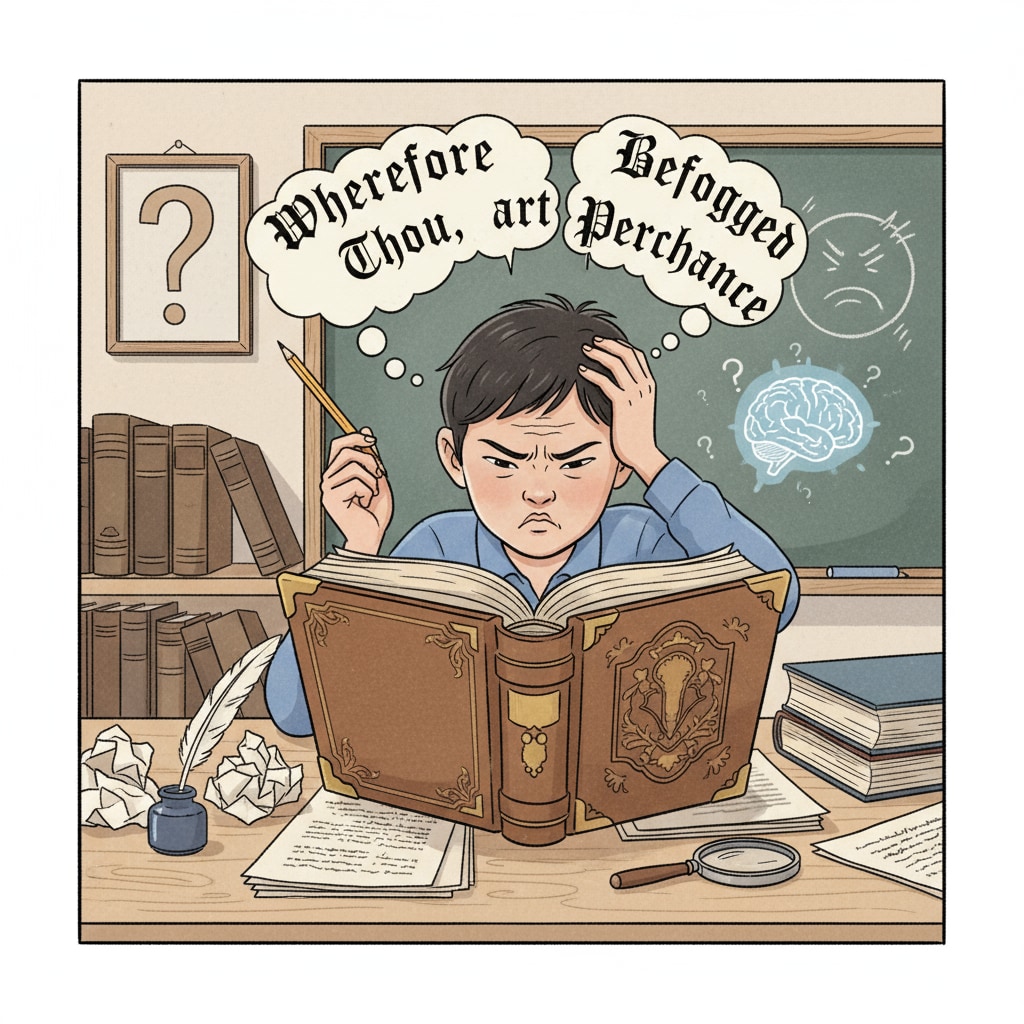English courses, literary works, and learning experiences often undergo significant changes as students progress through their academic journey. In ninth grade, many students notice a negative shift in their English and literary studies, transitioning from initial enthusiasm to growing boredom. This transformation not only affects their academic performance but also their long – term interest in language and literature.

The Shifting Landscape of Ninth – Grade English Learning
In the early stages of English learning, students are typically drawn to the language by its practical applications and the allure of simple stories and rhymes. However, as they reach ninth grade, the curriculum becomes more complex. The focus shifts from basic language skills to in – depth literary analysis, grammar intricacies, and advanced vocabulary. For example, students may have to analyze classic literary works like Shakespearean plays. This sudden change in the nature of the English courses can be overwhelming for many.
English language education on Wikipedia
The Role of Literary Works in the Decline of Interest
Literary works, which are supposed to be a source of inspiration and learning, sometimes contribute to the negative learning experience in ninth grade. The choice of texts may not always resonate with students’ interests or life experiences. Many classic literary works are set in different historical periods and cultural contexts, making it difficult for modern ninth – graders to connect with the characters and themes. As a result, what should be an engaging exploration of literature turns into a chore of deciphering archaic language and unfamiliar concepts.

Moreover, the way literary works are taught can also be a deterrent. Instead of encouraging students to develop their own interpretations and engage in lively discussions, the focus is often on rote memorization of literary terms and pre – determined analyses. This approach stifles creativity and makes the study of literary works seem dry and unappealing.
Educational理念与实践差距
The negative shift in learning experiences can be attributed in part to the gap between educational concepts and practices. In theory, English and literary courses in ninth grade aim to cultivate critical thinking, creativity, and a love for language. However, in practice, the pressure to prepare students for standardized tests often takes precedence. Teachers may find themselves focusing more on teaching to the test rather than fostering a genuine appreciation for literature.
This misalignment between educational goals and teaching methods means that students are not getting the holistic learning experience they deserve. They are missing out on the opportunity to explore the richness of language and literature in a way that is both meaningful and enjoyable.
Rekindling the Passion for English and Literature
To reverse this negative trend, it is essential to find ways to make English courses and literary studies more engaging. One approach could be to select literary works that are more relevant to students’ lives. For example, contemporary young adult literature can provide a bridge between the students’ world and the literary realm, making it easier for them to connect with the themes and characters.
In addition, teaching methods need to be reimagined. Teachers can encourage more student – centered discussions, where students are allowed to share their unique perspectives on literary works. This not only promotes critical thinking but also makes the learning process more interactive and fun.
Finally, integrating technology into English and literary courses can also be a game – changer. Digital resources such as interactive e – books, online literary communities, and multimedia presentations can bring literature to life and make it more accessible and appealing to ninth – grade students.
Readability guidance: By understanding the reasons behind the negative shift in ninth – grade English and literary learning experiences and implementing these strategies, educators can help students regain their enthusiasm for language and literature. This will not only enhance their academic performance but also lay a solid foundation for a lifetime of learning and appreciation of English and literary works.


